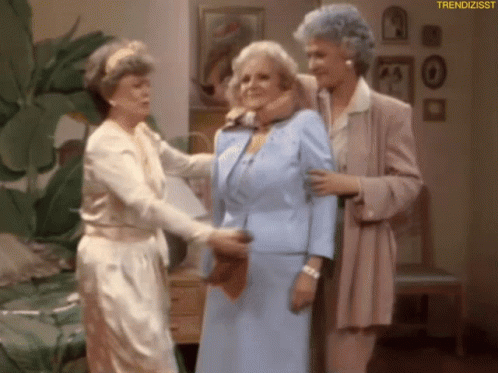
How Women with ADHD Can Manage Relationships: Effective Communication and Conflict Resolution
For women with ADHD, navigating relationships—whether romantic or platonic—can present unique challenges. ADHD symptoms like distraction, impulsivity,...

Friendships are meant to uplift, support, and add joy to our lives. But what happens when a friendship does the opposite? Toxic friendships can sneak up on us, leaving us emotionally drained, anxious, and even questioning our self-worth. Learning to recognize the signs of a toxic friendship is the first step toward protecting your mental health and prioritizing healthier relationships.
Let’s dive into the red flags of toxic friendships and explore practical tips for setting boundaries and fostering relationships that truly nourish you.

Toxic friendships are relationships that cause more harm than good, often filled with emotional manipulation, negativity, or imbalance. These friendships can be mentally and emotionally exhausting, leading to stress and feelings of insecurity. They often have a one-sided dynamic, where one person takes more than they give.
Wondering if your friendship might be toxic? Here are some common red flags to watch for:
After spending time with a toxic friend, you might feel emotionally exhausted rather than uplifted. If you consistently leave interactions feeling worse than when you arrived, this is a clear sign that something’s wrong. Toxic friends often rely on you for emotional support without offering the same in return.
A toxic friend might make you feel bad about yourself through subtle or direct criticism. Whether it’s picking apart your appearance, your life choices, or your accomplishments, they may disguise hurtful comments as “jokes” or “just being honest.”
Research Insight: According to psychologists, chronic criticism in friendships can lead to reduced self-esteem and contribute to stress-related health problems, like anxiety and depression.
Toxic friends often use manipulation tactics like guilt-tripping or playing the victim to get what they want. They might make you feel guilty for setting boundaries or for prioritizing your needs over theirs.
Healthy friendships are built on mutual support and respect. In a toxic friendship, you may find that your friend is there during the good times, but absent when you need them most. Reciprocity is essential to a balanced relationship.
 A group of women enjoying time together in nature, strengthening their emotional well-being and fostering healthy relationships.](/_astro/women-enjoying-time-together.DnoS-ZIh_NlPbT.jpg)
Recognizing a toxic friendship is the first step—next, you need to take action to protect your mental health. Here are some strategies for setting boundaries and addressing the emotional drain caused by toxic friendships:
It’s important to communicate how you feel with your friend, especially if you value the relationship and want to repair it. Be honest but kind. Explain how their behavior is affecting you, and give them the chance to understand your perspective.
Boundaries are essential in any relationship, but they’re especially important in toxic friendships. Whether it’s limiting the amount of time you spend together or being clear about what behaviors are unacceptable, setting boundaries helps protect your emotional well-being.
Tip: Practice saying “no” without guilt. You have the right to prioritize your mental health without feeling bad about it.
Invest your time and energy in relationships that make you feel valued, supported, and appreciated. Building a support system of positive friendships can help you gain the strength to distance yourself from toxic ones.
Sometimes, the best option is to end the friendship. If your toxic friend doesn’t respect your boundaries or continues to drain your energy despite your efforts, it may be time to step back for your own mental health.
Research Insight: Studies published in the Journal of Health and Social Behavior show that distancing yourself from toxic relationships can lead to improved mental well-being, better stress management, and increased emotional resilience.
Q: What are the signs of a toxic friendship?
A: Some key signs of a toxic friendship include emotional exhaustion, constant criticism, manipulation, guilt-tripping, and a lack of mutual support. If you consistently feel drained, criticized, or manipulated, it may be time to evaluate the friendship.
Q: How can I set boundaries in a toxic friendship?
A: Start by clearly communicating your feelings and needs. Be firm in setting limits on how much time you spend together or on certain behaviors that are unacceptable. It’s okay to say “no” without guilt, and prioritize your mental health.
Q: Should I end a toxic friendship?
A: If setting boundaries doesn’t lead to positive changes, and the friendship continues to be emotionally draining, it may be best to distance yourself or end the relationship altogether. Sometimes walking away is necessary for your well-being.
Q: How can I move on after ending a toxic friendship?
A: Surround yourself with supportive and uplifting people. Focus on nurturing relationships that make you feel valued and cared for. Allow yourself time to heal and process any emotions that arise from the friendship ending.
Q: Can a toxic friendship be repaired?
A: In some cases, yes, if both parties are willing to acknowledge the issues and work on them. Open communication, mutual respect, and boundary-setting are key to repairing a friendship. However, if the toxic behavior continues, it may be best to move on.
The content in this article is intended for informational purposes only and should not be considered a substitute for professional advice or counseling. Relationships, including friendships, are complex, and it’s important to seek support from a therapist or counselor if you are experiencing significant emotional distress. Every individual and relationship is different, and professional guidance may be beneficial in navigating difficult interpersonal dynamics.
Navigating toxic friendships can be challenging, but taking action to protect your emotional health is essential. Recognizing the signs, setting boundaries, and surrounding yourself with positive, supportive people are the keys to fostering fulfilling and uplifting relationships.
Takeaway: It’s okay to outgrow toxic friendships. Not all relationships are meant to last forever, and choosing to walk away is often the best decision for your mental well-being.
Embrace it: Focus on nourishing the friendships that leave you feeling empowered, valued, and happy. Surround yourself with people who uplift you—because that’s what true friendship is all about.

For women with ADHD, navigating relationships—whether romantic or platonic—can present unique challenges. ADHD symptoms like distraction, impulsivity,...

Managing time can be a challenge for anyone, but for women with ADHD, time management often feels like an insurmountable task. ADHD can make it diffic...

Relationships—whether romantic, familial, or friendships—are central to our emotional well-being. But navigating these relationships can sometimes fee...

For many women, trauma is a deeply personal experience that can impact emotional well-being, relationships, and overall quality of life. From childhoo...

Career-related stress is something most women face at some point in their professional lives. The balancing act between personal and professional resp...